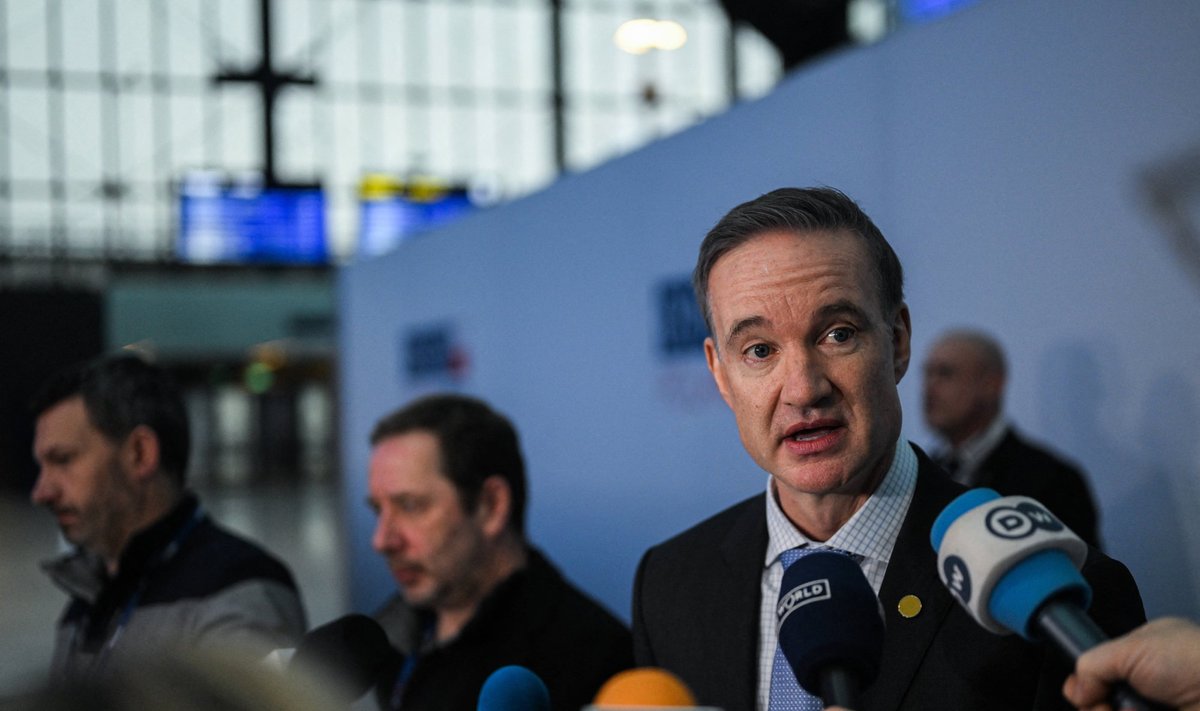The United States and its allies continue to increase their military assistance to Ukraine. The ambassador expects broad support in the United States for the transfer of F-16 fighter jets to Ukraine by allies.
Speaking about the blocking of the work of the OSCE in the territories of Ukraine occupied by Russia, the Ambassador said that the organization should be treated "as a house that we have built together, Russia has come in and it has burned that house down". Russia has blocked OSCE missions in the occupied territories in Ukraine, seized about 70 OSCE vehicles, and it is holding three OSCE personnel as hostages. In an interview, the Ambassador spoke about whether it is possible to exclude Russia from the OSCE, how to return Ukrainian children deported by the aggressor, and how to secure the world against the Russian Federation after the war.
- In Germany, a meeting in the Ramstein format is under way. Do you think it will be able to change the situation on the battlefield in Ukraine?
- I think it will. I think you see that more than 50 allies are coming together with some partners to pledge support for Ukraine. And we have seen the level both quantitatively, but also qualitatively, of Western support for Ukraine continuing to grow. And so it is heartening to see that new types of systems that are necessary for the current fight, but also down the road for the battle that continues over the next couple of months, will be delivered to Ukraine; things that they need are things like Stryker armored personnel carriers and Bradley infantry fighting vehicles. These are very important tools that give the Ukrainian military the mobility that they need on the frontlines to be able to win this fight.
- How do you understand this term “crucial moment”, that will be in a few weeks or months, that was predicted by some Western leaders?
- Well, look, I mean, Ukraine has been in an existential battle for its survival since the beginning of this war on February 24. So I don't know that there's any more crucial moment than the one that we have been in for the past 11 months. But it is clear from the fight that goes on right now in Bakhmut and Soledar, that the fighting is very heavy, and there are large casualties on both sides. And Ukraine needs to have the equipment that is necessary to prevail in this type of warfare, trench warfare, with often heavy armor on the front lines, at least on the Russian side, where they have an advantage in terms of this sort of heavy mechanized force. And so we need to give Ukraine the means to be able to defend that territory and hopefully also retake it. If not in the coming weeks, then at least in the coming months.
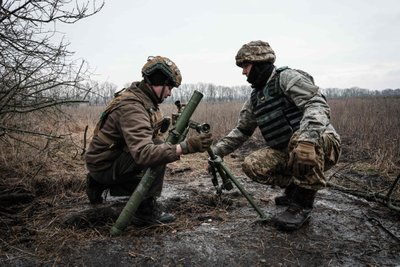
- What are the Biden Administration’s expectations - just stop the invasion or throw the Russians out from Ukrainian territory?
- We want Ukraine to win. We need to see the end result be the liberation of Ukrainian land. That is sovereign Ukrainian territory within its internationally recognized borders. Russia has no business being inside Ukraine's territory. The solution is very simple. It's for Russia to leave.
- The Netherlands announced that they are ready to supply Ukraine with their surplus F-16 fighters. Do you think the Biden Administration is ready to take the next step and give approval for the supply of these fighters?
- Well, we have long held the view that what our allies contribute is their business. And we support the myriad of contributions that our allies have made to Ukraine. And this has been true from the very beginning of the war, when we discussed Soviet legacy systems to the current period where we're discussing main battle tanks, and more sophisticated, both Air and Air Defence frames and systems. And so I would expect that there would be broad support in the United States for our allies to continue to step up their contributions.
- Even jets?
- Even jets.
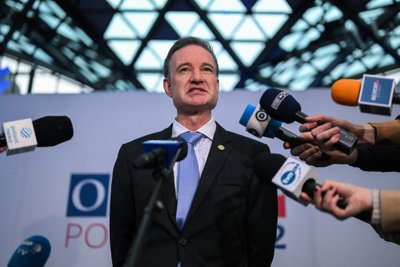
- Poland called on NATO to give security guarantees to Ukraine. What might these guarantees be, in your opinion?
- Well, clearly, when a country is being attacked by a large, aggressive power like Russia, it's natural that we would talk about security guarantees and security support. There has been a decision made in Bucharest in 2008, a famous decision at the NATO summit that Ukraine together with Georgia will one day become a member of the alliance. Until the political will is there for Ukraine to be a NATO ally, it will be vulnerable to attacks from Russia. And I think a lot of folks who look at the situation currently suspect that even if there were a ceasefire tomorrow, that Russia would use that period to rest and refit and then at some point in the future, would re-attack Ukraine. So we have to collectively with the international community, with the group of like minded Western states, have to collectively look at what sorts of assurances or support we can give Ukraine until it is politically ready - until the Alliance frankly is politically ready to admit Ukraine as a member. That period of time may be longer or shorter. I don't know, it's hard for me to predict. But there should be some sort of system in place to give Ukraine security. I don't know if it's guarantees or if it's assurances and equipment and supplies and weapons, but also sanctions as part of a package. This has been discussed between the former NATO Secretary General Anders Fogh Rasmussen and the head of the Ukrainian presidential administration, Andre Yermak; they have come up with a non-paper. This is how I understand this topic. Of course, it needs to be developed further and discussed in greater detail amongst the allies.
- But, in your opinion, what would be the best guarantee for Ukraine? I mean, maybe it is NATO membership? That's what Ukrainian authorities claim.
- Well, again, there has to be some sort of bridging mechanism. Until the point in time when Ukraine is a NATO member, I can't predict for you what the political will inside the alliance will be like in a year, in five years, in 10 years. Maybe NATO membership will come sooner than we anticipate today, sitting here right now. But there should be some sort of mechanism for sanctions and for military support and assistance to Ukraine in the meantime. And so I think that's where the conversation is right now, amongst many allies. And I think it's a conversation that needs to continue to develop, so that we have a common approach to this position, of course, developed in consultation with our Ukrainian friends.
- What is the role of the OSCE in this war? I mean, if you look back, what could the OSCE do to prevent it?
- Well, at the end of the day, the OSCE is an organization that provides services to the various countries where it has field missions, it did have several missions inside Ukraine, a border mission, had the special monitoring mission. And it also had the project coordinator in Ukraine that provided support to the Ukrainian government. Russia has vetoed those missions. But you know, it's not the fault of the OSCE that, you know, think of the OSCE as a house that we have built together, Russia has come in and it has burned that house down. It's not the fault of the architects who built the house, that someone came in and created arson inside that house. It's the fault of the arsonist. In this case is the fault of Russia for being the aggressor. What the OSCE has is tools. And in my view, and I'm representing the United States, I don't speak for the organization. I speak for the United States, in our view, however, we should be very steadfast in using those tools. And we should not allow Russia to veto our ability to help Ukraine. And that's what we've done. In the last couple of months, we have developed a project called the Support Programme for Ukraine, which was will now in the coming weeks be operationalized on the ground in Ukraine to support Ukraine's needs, demining, psychosocial support for those affected by the war, support for building capacity to deal with accountability for the various war crimes that have been committed, those sorts of things. We have to support Ukraine with that, and whether Russia decides that they want to veto or not, we should do it anyway. Because, after all, if the United States wants to fund this, if Germany and France want to fund this, if the EU wants to fund it, we should do it. And that's where we've arrived today. That's where we are, is that we're willing to do this, despite Russia's veto, we will allow them to veto this.
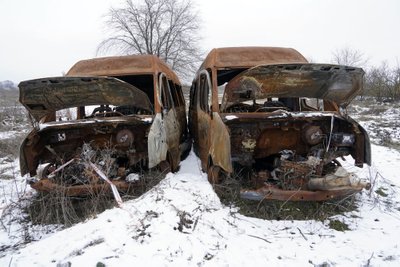
- What needs to be changed in the future so the organization can act properly?
- The reality is that the OSCE is an inclusive organization that has Russia, Belarus and various other countries that are non-democratic within its membership. So it's limited. I mean, NATO serves a purpose. The EU is a normative organization that serves a purpose. The OSCE is a different type of organization, it's not the solution to every problem. And don't forget that the OSCE is an organization that really grew up in the 1990s, when the West's relationship with Russia was more cordial, more collaborative. Right now, Russia is violating every single rule of the international system. And by the way, Russia is attacking the OSCE itself. It has requisitioned apparently, as many as 70 or more OSCE vehicles from the special monitoring mission. And it's holding three of the national staff members of our organization hostage right now as we speak. So what kind of a participating state is that which holds hostage members of the organization and requisitions, or steals for lack of a better word, the cars that we've paid for as members of this organization, so we should not be content with trying to work with Russia in the current period. Maybe at some point in the future. I don't exclude that. But in the near term, we need to work against Russia and around Russia working with like minded states that share our values. And, frankly, that's what we're trying to do.
- How do you expect to release the OSCE staff from their captivity? Maybe as part of an exchange of prisoners of war?
- I wouldn't exclude it. The Secretary, and our Secretary General, are in active talks with the Russian Federation on this, they continue to press the case, they continue to demand the release of these three individuals who were bravely working for the organization, which for a mission, which by the way, not only Russia approved, but Russia was funding. It's really outrageous what the Russians are doing, of course, the entire war is outrageous, the torture, the mutilation, the rape, the killing of Ukrainians is outrageous. So everything that we're talking about is outrageous. And in these circumstances, this is just another outrage that we have to deal with. But it's not one that we're forgetting about or trying to put off to the side, we continue to raise it all the time with the Russians.
- There are discussions that aggressive state Russia must be expelled from international organizations. OSCE Secretary General Helga Maria Schmid doesn't support this idea. How do you feel about that?
- To be perfectly honest with you, I am sympathetic with this idea. As I said, Russia cannot, should not be a good standing member of any international organization right now. And frankly, if there were a path to push Russia out of the OSCE, it's a path that I would not oppose. But there is no such mechanism, there is no path to excluding Russia. When the organization was created, as I said, it was in the 90s in a different geopolitical time, and perhaps some mistakes were made then. But that option does not really exist right now. So what we have chosen to do as participating states within the organization is to isolate Russia and Belarus completely. And we've done that, no other state is supporting them right now. And so it's really the two against 55. And the 55 are different, you know, there's countries from Central Asia, which are still formally CSTO allies with Russia, but at least they're not defending Russia within the organization. And we have a large group of 45 or more, maybe even close to 50 states that are appalled by Russia's war.
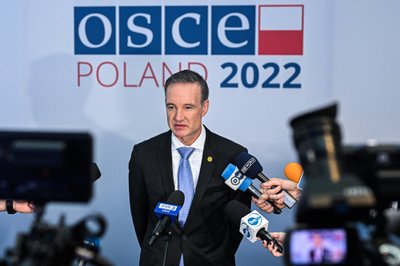
- Russia has been abducting and deporting children from Ukraine to Russia. What is the US position on this illegal conduct?
- This is one of the most disgusting and horrifying things that Russia has done in this war. And there was even a story that was told to me recently of a child that was taken into the Russian Federation that was told by a Russian soldier, “your mother no longer needs you” to a child who was 11 years old. This behavior is absolutely reprehensible. And the Russian Federation is trying to use the excuse that it is somehow caring for these children and that its actions are humanitarian in nature, nothing could be further from the truth. It's ripping these children away from their families. And there will have to be a sustained process over many years, where the international community helps Ukraine to reunite families with their children. It will be something like what happened after the Dirty War in say, Argentina where lots of people disappeared. Many were killed, torn away from their families. And then there was a painstaking process of trying to identify who was missing, and whether they could be found afterwards. And it'll be a painstaking process here. But the international community absolutely cannot ignore this problem. And in fact, it needs to start dealing with it now. While we still know the names of the children, and there's still family members who can come forward and talk about where they might be.
- What should the international community do to release these children?
- The short answer to your question, which is not satisfactory, but the short answer is to enable Ukraine to win this war. The longer answer requires building institutional capacity, with Ukraine with the Ministry of Interior with other ministries within Ukraine within the government to create some sort of registry that will keep track of these children. And that will create a process where they can be identified, and then returned home to their families.
- Russia has been conscripting Ukrainian citizens in occupied areas into their armed forces. What can the US do to stop this illegal conduct?
- Yeah, let's be very clear. This is a war crime. Conscripting members of a different country to serve in your armed forces at a time of conflict is war crime. And this is just another one of the appalling atrocities you could make a list from the abduction of children and their deportation to Russia to conscription involuntarily of Ukrainian citizens to torture using electrocution, sexual based violence. I mean, the list is extensive. And what can we do about it? Well, we have to pursue accountability, we have to keep track of every single crime. And I've been told that the Ukrainian Prosecutor General's Office has now identified over 60,000 war crimes that have been committed in Ukraine. And we have to keep track of each one and some of them will get prosecuted by the ICC. Some will be prosecuted, probably the majority by Ukraine, and others will be prosecuted by other states or jurisdictions based on whether those individuals want to wind up in their custody one day or not. But we have to be vigilant about this, and we have to pursue accountability.
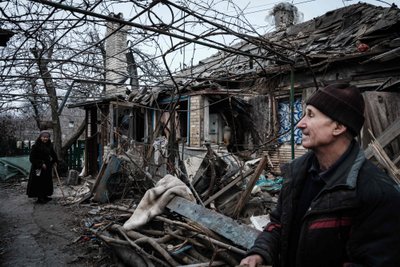
- Russia weaponized food in Syria and Ukraine. What is the US position on this practice?
- Russia did weaponize food, not only did it bomb facilities that were storing grains and food, but then it also blocked ships from being able to exit from their ports in the Sea of Azov and in the Black Sea to deliver those foods to countries around the world where they're needed. And they caused a major rise in the price of various staples which contributed to hunger in the Global South. Extremely, extremely irresponsible. But thankfully, Turkiye and the UN stepped in, there is this black sea grain initiative, which allows for the export of some of Ukraine's grains to the outside world. But make no mistake, this initiative has not stopped Russia from continuing to plunder Ukrainian agricultural goods, as well as many other things, cultural artifacts, by the way, and take them to Russia. So there will have to be accountability for all of this. There will have to be a demand for some sort of reparations based on this looting of Ukraine's property.
- And the last question. How could the world make Russia safe for the rest of the world? Maybe Russia should be denuclearized or something like that?
- We have to look at what is possible. And the reality, of course, is that Russia is one of the largest countries by landmass and in the world. The Russian state spans 11 time zones, it's absolutely enormous. So the notion that Russia needs to attack other countries to gain even more territory is well, it would be wrong in the first place, even if Russia was miniscule. But in the scale of things, it is truly astonishing. But the Kremlin has an imperialist mindset. And this mindset has to be put to rest. We cannot continue to cooperate with a country that is so intent on flouting the rules of the international system. And so that's why, you know, we say, of course, Ukraine must win. That's for the sake of our friends in Ukraine. But the flip side is Russia has to endure a strategic defeat. And the reason for that is exactly for the reasons that you've raised, which is that the world cannot live with a country that from one day to the next just decides to use weapons and cross the border and invade its neighbor.
